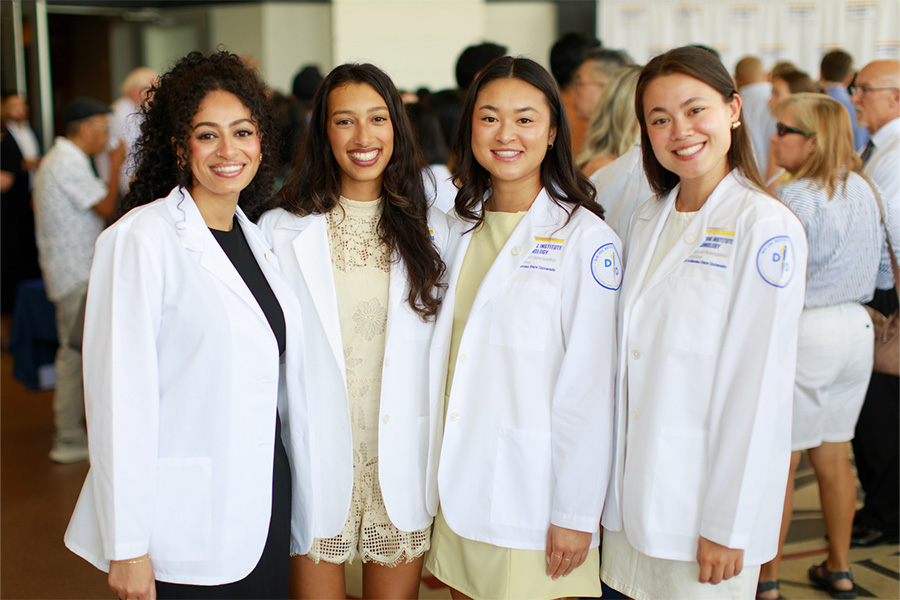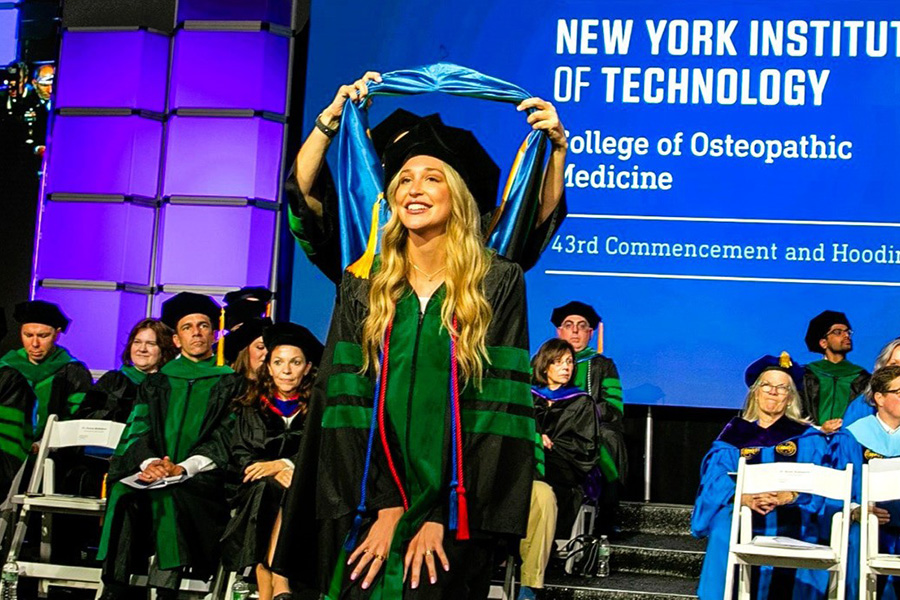Staying Healthy at 35,000 Feet
On June 24, the TSA reported an all-time high for the number of airline travelers screened, and major American airlines expect to transport 271 million passengers this summer—a 6.3 percent increase from last year.
With the summer travel season in full swing, board-certified infectious disease physician Carl Abraham, M.D., assistant professor at the College of Osteopathic Medicine’s Jonesboro location (NYITCOM-Arkansas), arms passengers with information to stay healthy at 35,000 feet.
Abraham notes that some people may be surprised about the risk of germ spread on most airplanes.
“Commercial airplanes contain high-efficiency particulate air (HEPA) filter systems, which exchange the air rapidly. In general, the risk of spreading an airborne pathogen is lower in an airplane than in other indoor, public settings,” he says. “However, some studies suggest that sitting within two rows of an infected passenger does increase the risk of acquiring an airborne infection.”
Given this, Abraham urges anyone with a possible respiratory tract infection to wear an N95 mask, as well as those with compromised immune systems.
“Disinfecting touched objects, like seatbelts or trays, won’t hurt, although airlines are supposed to make sure areas are cleaned thoroughly between flights,” he adds.
But, the real hotspot might be the airplane lavatory. Here, transmission can occur either by encountering surfaces contaminated by bacteria or by inhaling air contaminated with certain viruses—like influenza, SARS-CoV-2, and measles—after being used by a contagious passenger. Transmission of norovirus, the common cause of diarrheal outbreaks on cruise ships, has also been reported.
“In general, the surfaces of public restrooms are frequently contaminated with fecal flora, bacteria found in stool. Airplane restrooms that are shared between passengers are no exception,” says Abraham. “And, although airlines clean the lavatory between flights, their use during the flight results in contamination of the toilet, sink handles, door handles—inside and outside, and especially the floors. Bacteria from the bathroom can also track into the cabin on the bottom of our shoes.”
To avoid coming into contact with these germs, Abraham advises passengers to open and close lavatory door handles with a sanitizing wipe, use toilet seat covers, and close the lid before flushing.
“Importantly, everyone should always wash their hands or practice some form of hand hygiene before putting clothes back in place and before and after eating,” he says.
More News

Coating the Class of 2028
The College of Osteopathic Medicine (NYITCOM) welcomed its newest medical students with White Coat Ceremonies on Long Island and in Arkansas.

Brookshield Laurent, D.O., Joins Health and Human Services Advisory Committee
The U.S. Secretary of Health and Human Services has appointed Brookshield Laurent, D.O., to serve on the Advisory Committee on Training in Primary Care Medicine and Dentistry.

CORK 2024
D.O.s and scientists from around the world traveled joined NYITCOM for the inaugural Conference on Osteopathic Research and Knowledge (CORK).

Staying Healthy at 35,000 Feet
Carl Abraham, M.D., assistant professor at the College of Osteopathic Medicine’s Jonesboro location (NYITCOM-Arkansas), arms passengers with information to stay healthy at 35,000 feet.

Highlighting Faculty Tenures, Promotions for 2024-2025
As New York Tech prepares for the 2024-2025 academic year, several faculty are recognized for outstanding teaching, scholarship, and service.

Hooding New Physicians
Members of NYITCOM’s Class of 2024 received their doctoral hoods at ceremonies in Old Westbury, N.Y., and Jonesboro, Ark.